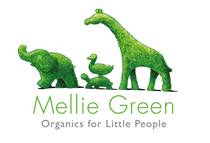So we know what you’re thinking . . . . lovely products but what’s with the organic cotton?
FIRST WHAT IS ORGANIC COTTON ANYWAY?
Organic cotton is free from hazardous chemicals and without harmful residues so it’s best for your skin (and best for your baby’s delicate skin). Organic clothing is naturally soft and because it’s free from allergens you’ll find that it won’t irritate your little one’s sensitive skin.
To understand the debate let’s go right back to the beginning and see how clothes are made. It all starts with cotton plants – the demand for cotton is massive and increasing daily; according to the Soil Association there are over 100 million cotton farmers in 80 countries across the world trying to meet this demand. The number itself is staggering but did you also know that cotton farming uses the most and some of the most toxic pesticides in crop production? This not only affects the environment and the ecosystem but it also impacts up to 77 million agricultural workers who are poisoned every year.
Next the cotton is processed, dyed and turned into clothing – this process uses toxic dyes and chemicals and there are no mandatory checks placed on factories undertaking production.
So that is the production side – but what about the clothes when they get to you? Tests have shown that these toxic dyes and chemical processes can leave residue on clothes which can be absorbed through the skin. That includes formaldehyde which is used to give clothes that pristine just ironed look, insecticides to stop infestations and anti-mold chemicals. If you’ve ever noticed rashes or allergies in yourselves or your little ones after wearing new clothes then that could be the cause. Again – there are no regulatory tests performed on clothing coming into the country.
So the answer is yes you should. You should wash everything and wash it well before wearing it, for dry clean only items make sure they’re well aired. As baby and children’s skin is so much more vulnerable than ours this is especially important with children’s clothes and sleepwear.
But washing your clothes well before you wear them doesn’t solve the problem. The Cotton Workers will still get poisoned through pesticide use, waterways will still get polluted and huge amounts of CO2 will still be released into the atmosphere. The answer to all of that is organic farming. Organic Cotton is certified by the Global Organic Textile Standard (GOTS) that means it doesn’t use GM cotton seeds; or hazardous pesticides; or toxic dyes; it uses less water, produces 94% less greenhouse gas emissions, and waste water is treated, meaning waterways and community water sources are unpolluted; plus factories are regularly inspected and toxic, carcinogenic and allergenic residues are not allowed in the finished clothing.
DO YOU NEED ANY MORE REASONS TO BUY ORGANIC?
The Organic Story is about so much more than a fad or the label, and for many manufacturers it is also fair-trade, giving a better deal to the farmer. Organic cotton is better quality and the organic process produces softer and harder wearing fibres, meaning your little ones clothes wash better, last longer and stand up better to all the wriggling, crawling and bum shuffling that they get put through. This all means you can chose quality over quantity and pass your organic items on to be used for years to come.
Oh – we’ll add that organic cotton washes really well so you’re clothes will look as good as new for longer, and can be passed on to be worn again and again.
The difference between organic and non organic clothing production is pretty much summed up with this infographic from the Soil Association – and we can’t say it better than this! (Just click the image below to make it a bit larger so it’s easier to read)


